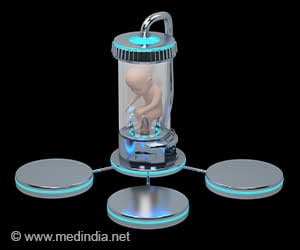
Inflammation is associated with brain swelling, (also known as encephalitis or vasogenic edema), and is found in a small subset of Alzheimer's disease patients enrolled in ongoing vaccine trials, says the study's lead investigator, R. Scott Turner, M.D., Ph.D., director of the Georgetown University Memory Disorders Program. Turner is both a laboratory scientist and a neurologist who treats individuals with dementia due to Alzheimer's. He is a lead investigator of clinical studies examining new therapies including vaccines.
While patients often don't know they have this side effect and have no symptoms, the swelling can be seen on MRI scans that are routinely performed on patients enrolled in these trials, he says. "Excessive inflammation, however, is counter-productive because it will limit the benefits of the vaccine treatment, and in a few cases, will cause new problems," Turner says.
The study is important, he says, because it shows that excessive inflammation occurs in brains that have a high burden of amyloid, suggesting that benefits from the vaccine will most likely be found in those with a lower amyloid burden. The study also provides clues as to how and why the inflammation occurs, Turner says. Such studies defining inflammatory mechanisms in the brain are not possible in Alzheimer's patients undergoing these treatments.
Active immunization involves injecting amyloid protein in patients so they can mount an antibody response (similar to getting a flu shot). Amyloid is the protein that builds up in the brains of Alzheimer's patients and is thought to be the primary cause of the disease. Passive immunization involves infusing monoclonal antibodies intravenously so they can attack amyloid build-up in the brain. Inflammation is an expected part of the body's immune response in both of these vaccine strategies, but excessive inflammation can be harmful, Turner says. He undertook the study in a mouse model of Alzheimer's to understand if amyloid burden plays an important role in the degree of inflammation generated in response to passive immunization treatments.
Given the study findings, he says that the vaccines now being tested in patients with Alzheimer's may work better in patients with mild cognitive impairment, which is a precursor of Alzheimer's. Consistent with this notion, a new clinical trial testing active immunization in mild cognitive impaired (MCI) patients (with a positive amyloid PET scan) is now recruiting volunteers at GUMC.
Advertisement
Source-Eurekalert














